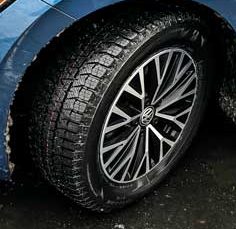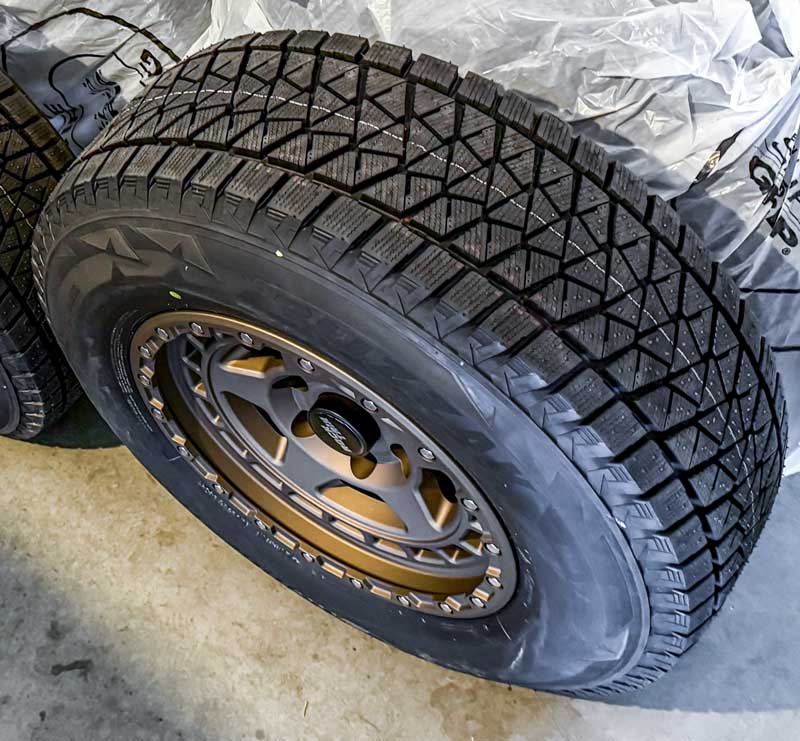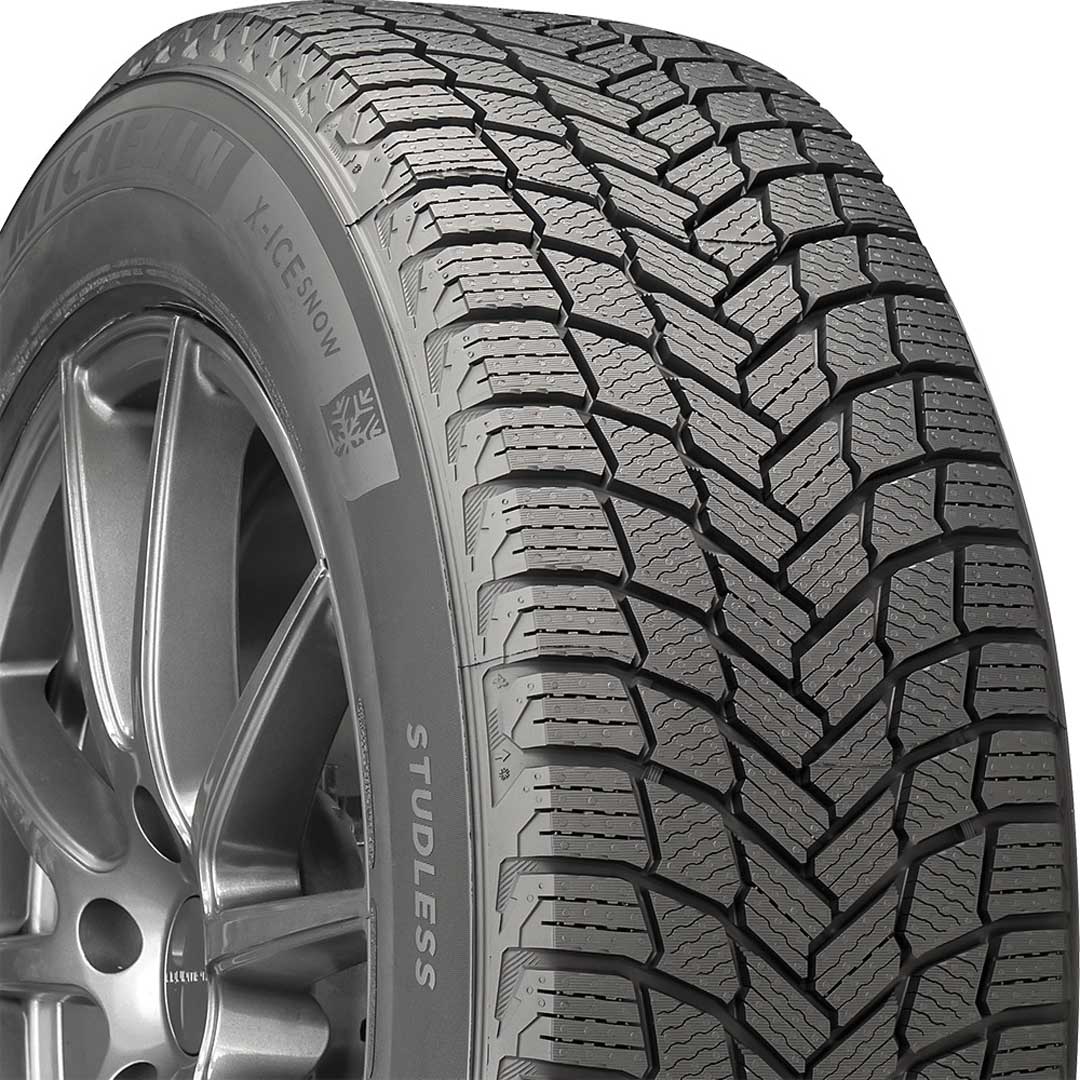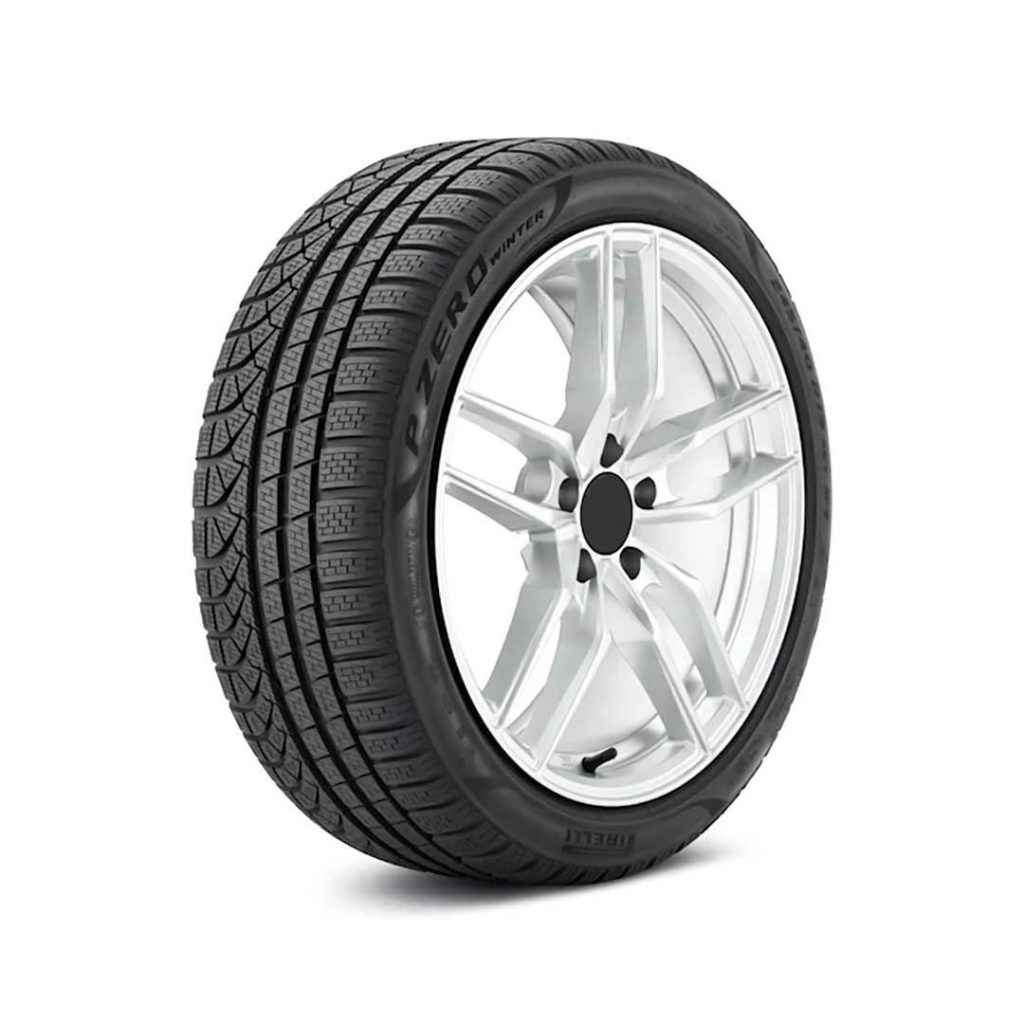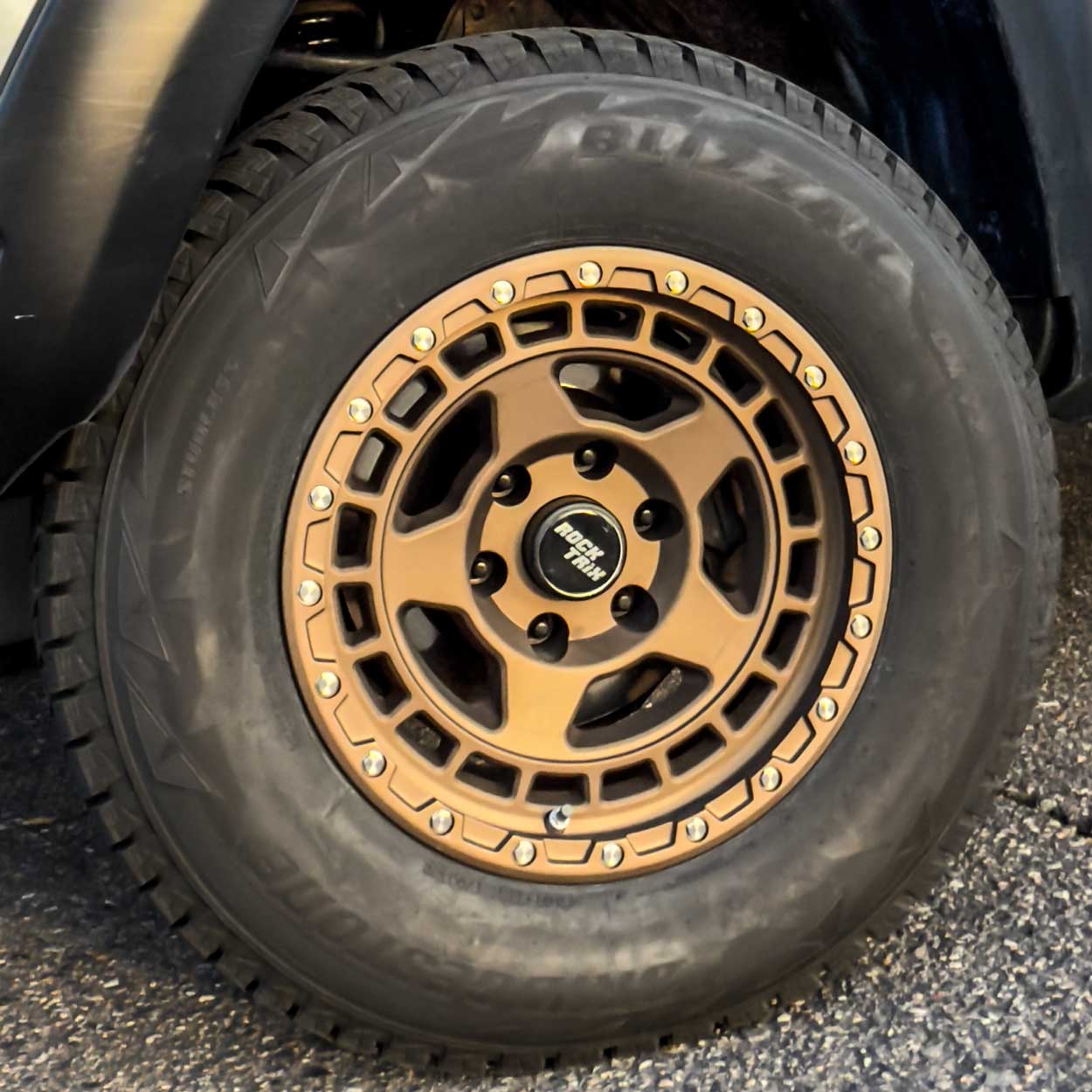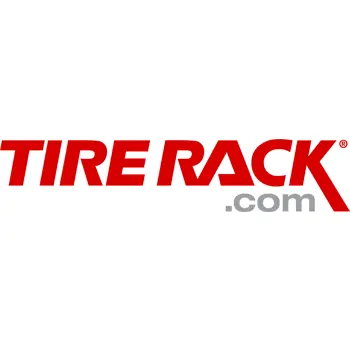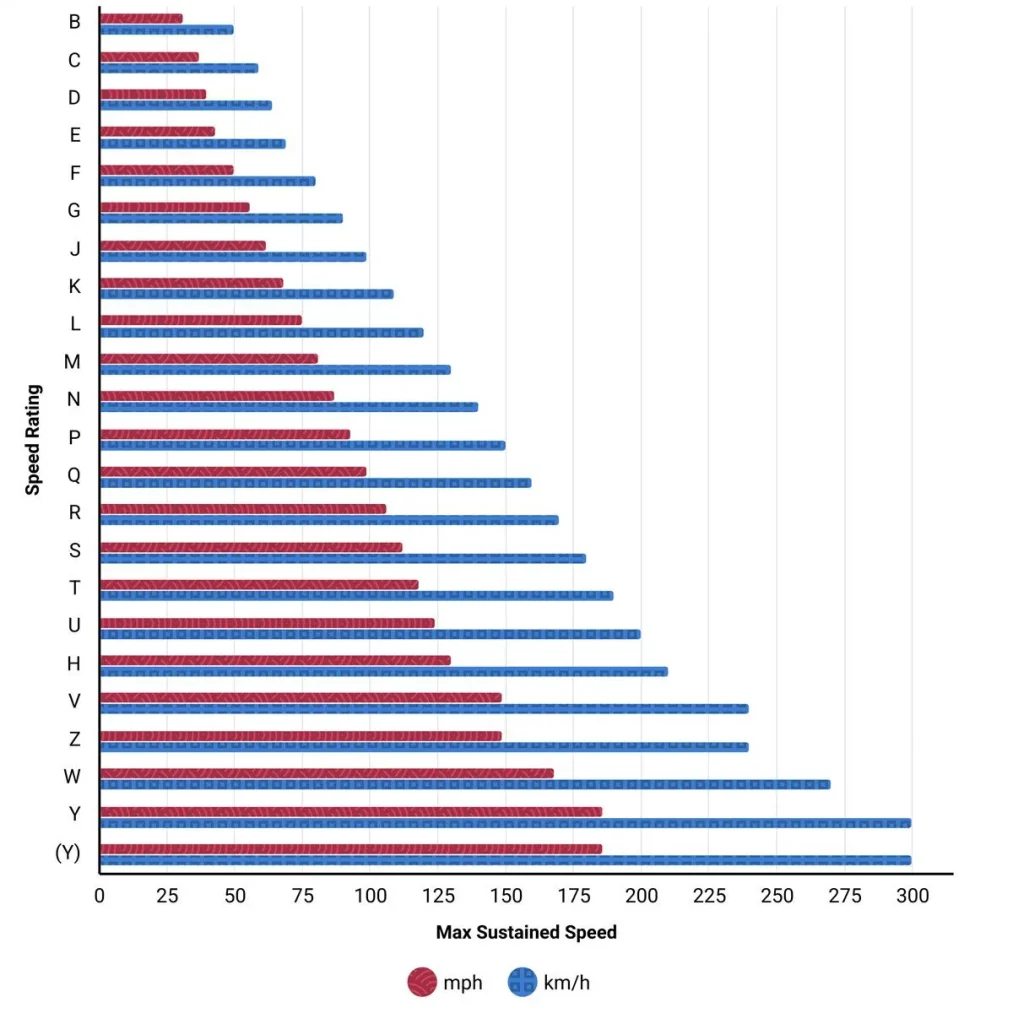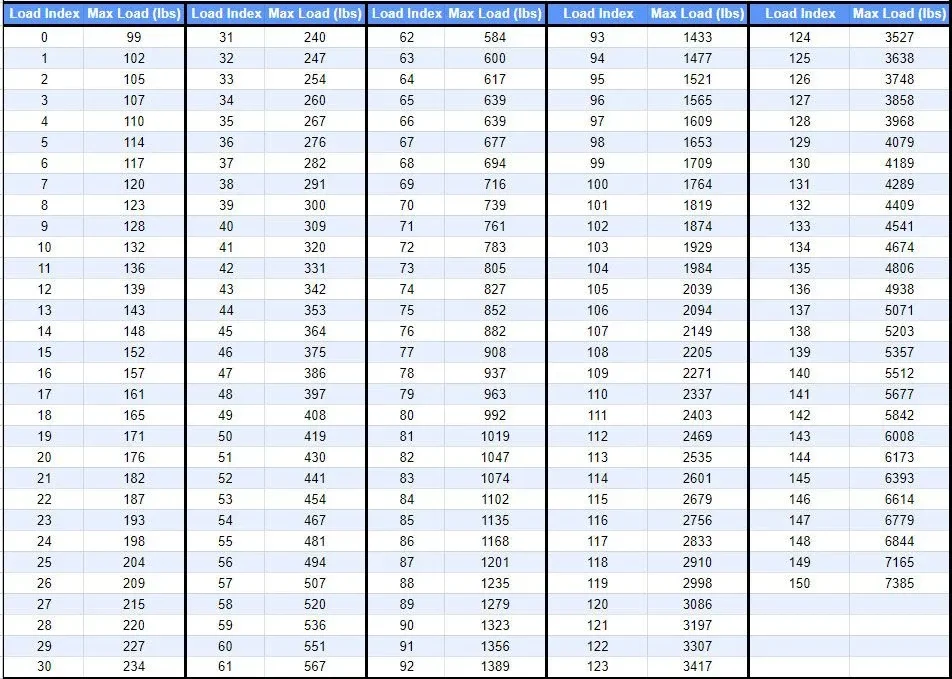Last Updated: October 10, 2025
Every year, I end up going down the rabbit hole of finding the best tires. Living in a place where you can't even head up in the mountains without proper tires, knowing what will keep you safe in the winter is essential. Up until now, the clear winners were the Bridgestone Blizzak WS90 and Bridgestone Blizzad DM-V2. I found DM-V2 to be a superior tire compared to all of the others, including Michelin X-Ice.
Before we dive in, let's set the expectations clear. This article is about the best winter tires, and NOT about the best all-season tires for snow. I will only cover the tires that I narrowed down and had the chance to test in intense real-life winter driving scenarios. As of the winter of 2025/2026, I have acquired another set of super-promising tires, the Continental VikingContact 8. These tires are not only dedicated winter tires that are Three-Peak Mountain Snowflake certified (3PMSF) but also Severe Ice Grip Rated. If you are not familiar with the concept of Severe Ice Grip rating, a tire earns this rating if it has a 3PMSF certificate and scores 18% better at braking on ice than the average winter tire.
Best Winter Tires for 2025 – Detailed Analysis
| Product Image | Product Name / Our Rating / Price | Primary Button |
|---|---|---|
|
||
|
||
|
||
|
||
|
To make things easier, I have broken down this review into the best tires per certain category, since not all tires will fit all types of vehicles. I don't want you to get the wrong tires for your vehicle.
Example: Blizzak WS90 tires are used on passenger vehicles; however, Blizzak DM-V2 tires are used on small SUVs. Blizzak LM-32 would be used on performance sedans, coupes, or luxury vehicles. Blizzak, in general, is fantastic for winter driving, but you need to know what type of tires you have to get based on your vehicle. Type.
Bridgestone Blizzak WS90 – Best Overall Winter Tire for Passenger Vehicles
- Load Range: SL - XL
- Load Index: 82 - 104
- Tread Depth: 11" - 12"
- Max PSI: 44 PSI - 50 PSI
- Weight: 17.0 Lbs - 32.0 Lbs
- Speed Rating: H - UP TO 130 MPH - T - UP TO 118 MPH
- Tire Aspect Ratio: 10.5 - 9.5
Two winters ago, I had the opportunity to test the Bridgestone Blizzak WS90 tires on my front-wheel drive Volkswagen Jetta during a trip through the snowy mountains of Washington. The journey was a testament to the tire's capabilities, as I encountered various challenging winter conditions. From the onset, the Blizzak WS90 tires impressed me with their exceptional traction on snow and ice. The updated winter tread compound and large contact area provided a reassuring grip, crucial for navigating the steep and slippery mountain roads. The assurance these tires provided was a game-changer, especially considering the unpredictable weather conditions in the region.
In my Blizzak WS90 review, one aspect that stood out was the tire's enhanced steering response and control due to the 30% increase in tread block stiffness over its predecessor, the WS80. This improvement was noticeable as I maneuvered through tight turns and over icy patches. The 15% more block edges on the WS90 also played a significant role in stopping power on ice, giving me peace of mind during sudden stops and sharp declines. With its thousands of biting edges, the multidimensional siping pattern consistently delivered outstanding grip, ensuring that my car remained stable and responsive in all conditions.
Durability was another key factor during my experience with the Bridgestone Blizzak WS90. Despite the harsh terrain and cold temperatures, the tires showed minimal signs of wear. This longevity is attributed to the optimized contact patch and enhanced tread block stiffness, which evenly distribute the vehicle's weight, reducing uneven tread wear. While the WS90 doesn't have a mileage warranty, its extra season of confident winter traction is a significant advantage. A reliable tire like the Bridgestone Blizzak WS90 performs exceptionally without quick wear and is invaluable for someone who frequently drives in winter conditions. The Blizzak WS90 is the best overall winter tire, delivering safety, reliability, and durability in some of the toughest winter driving conditions.
Pros
- The Bridgestone Blizzak WS90 is designed to provide excellent traction on snow and ice, helping you to maintain control of your vehicle in difficult winter conditions.
- The tire's directional tread pattern and special compound help improve handling on snow and ice, making it easier to steer and maneuver your vehicle.
- Bridgestone Blizzak WS90 winter tires are known for their long tread life, meaning they can last longer than other winter tires on the market.
- Customers highly acclaim Bridgestone's NanoPro MultiCell compound.
- According to manufacturer testing, the tires have better grip and braking performance than other winter tires.
- In milder climates, it performs like an all-season tire with more grip.
- There are also more aggressive tires if grip is a concern.
Cons
- Based on third-party reviews, it seems like it might wear down quicker than advertised.
- The car is pretty stiff on uneven roads (dry, snowy, and icy), which makes it feel not fully under control.
- It is fairly expensive if purchased without the Bridgestone rebate.
Best Overall Winter Tire for Small SUVs: Bridgestone Blizzak DM-v2
- Load Range: SL - XL
- Load Index: 85 - 117
- Tread Depth: 13" - 14"
- Max PSI: 35 PSI - 50 PSI
- Weight: 23.0 Lbs - 45.0 Lbs
- Speed Rating: R - UP TO 106 MPH - T - UP TO 118 MPH
- Tire Aspect Ratio: 40 - 75
Out of all the dedicated winter tires I have tested, the Bridgestone Blizzak DM-V2 were hands down the best. I have never felt as safe driving through winter storms as I did with the Blizzak DM-V2 tires. If you have been to Colorado, you know how snowstorms can get in the mountains. To my very pleasant surprise, the DM-V2 tires performed extremely well from acceleration to downhill braking on packed snow with icy patches.
I switched to them from Falken Wildpeak AT4W tires, which are Three-Peak Mountain Snowflake rated, but did not do too well on light snow. Therefore, I have narrowed down the 4Runner tire inventory to just two sets: the Wildpeaks for late spring to late fall, and the Blizzak DM-V2 for all cold months with a chance of snow in the Denver area or in the mountains.
If you do not drive an SUV, that's ok. I have friends who are driving on Bridgestone Blizzak DM-V2 tires all winter long in their 800-horsepower AWD BMWs as well. It is truly a winter tire with a wide range of size options to fit anyone's needs.
Pros:
- Incredible grip in snow and icy conditions
- They are quiet, so you will not get annoyed by the noise
- Great at breaking even in the most sketchy winter conditions as well as downhill
- Last a long time, I have driven with them around 15K miles with a 5000 lbs truck and don't even see any wear
- Very reasonably priced
Cons:
- Dry pavement handling isn't the best, but it's not bad
- No mileage warranty, but that's very common for winter tires
Best Winter Tire Warranty: Michelin X-Ice Snow (For Passenger Vehicles and SUVs)
- Load Range: SL - XL
- Load Index: 86 - 116
- Tread Depth: 10" - 11"
- Warranty: 40,000 miles
- Max PSI: 50 PSI - 51 PSI
- Speed Rating: H - UP TO 130 MPH - T - UP TO 118 MPH
- Tire Aspect Ratio: 35 - 70
The largest tire manufacturer outside of LEGO surely knows how to make a quality tire. Michelin X-Ice Snow tires are well known in the industry as one of the best in the business. This tire is engineered with Michelin's pioneering Evergrip technology, which incorporates a rigid polymer-based rubber compound for enhanced grip on both ice and snow. This feature, along with its full-depth sipes and wear-resistant design, ensures long-lasting winter traction, a key consideration for SUV drivers who face diverse and demanding winter conditions.
The performance of the Michelin X-Ice Snow in extreme weather is noteworthy. Its capabilities are evident, with a stopping distance up to 8.85 feet shorter on ice than other leading winter tires. Furthermore, the Flex-Ice 2.0™ tread compound maintains flexibility in extreme cold, ensuring excellent traction across various freezing temperatures. The V-shaped tread design optimizes the tread pattern for more biting edges in contact with driving surfaces, improving ice, snow, and slush traction. These features are particularly beneficial for SUVs, which require reliable performance in diverse terrains and weather conditions.
While the Michelin X-Ice Snow's performance is beyond question, its higher price point determined my decision to go with the Blizzak WS90. Like their cousins, Michelin CrossClimate2 tires, the X-Ice Snow's price tag is felt more by anyone's wallet. However, the X-Ice Snow is an excellent choice for those who prioritize robust winter performance for their SUVs and are willing to invest in top-tier tires. It offers a 40,000-mile limited manufacturer's warranty, ensuring peace of mind for a significant duration. If you have been researching winter tires by now, you know that barely any tire company gives mileage warranties. This tire embodies Michelin's commitment to safety and performance, making it a top pick for SUV owners seeking reliable winter tires. Despite my choice, the Michelin X-Ice Snow is undoubtedly a superior tire, and its second-place standing in my selection was influenced solely by its price.
Pros
- The X-Ice has specially designed tread patterns and a special compound that provides superior grip on slippery surfaces.
- The tires are also designed to handle well in wet weather, with good water evacuation and hydroplaning resistance.
- The X-Ice's tread pattern and compound help reduce road noise, making for a more comfortable ride.
- Flexible and compatible with a wide range of vehicles; available in 128 sizes and known to work well with EVs.
- It doesn't compromise everyday usability under wet or milder conditions.
Cons
- Michelin X-Ice snow tires tend to be more expensive than other winter tires on the market.
- While the tire performs well on snow and ice, it may offer different levels of traction on dry roads compared to a summer or all-season tire.
- Some online chatter suggests that X-Ice wears down quickly. My brother confirmed that it happened with his set as well
Best New Winter Tire for Icy Conditions: Continental VikingContact 8
- Load Range: XL
- Load Index: 88 - 117
- Tread Depth: 10" - 11"
- Warranty: first 2/32" of wear
- Max PSI: 50 PSI - 51 PSI
- Speed Rating: H - UP TO 130 MPH - T - UP TO 118 MPH
- Tire Aspect Ratio: 35 - 70
- Weight: 16.5 LBS - 41.0 LBS
I have just purchased the Continental VikingContact 8 tires to put on my family's Mazda CX-50. I went with these tires for testing purposes since I already have Blizzak DM-V2 and Blizzak WS90 tires on other vehicles. Right out of the gate, I can tell that the VikingContact 8 tires feel much more sticky than the Blizzak's, so I can only wonder how they will perform on Ice this winter. I will update this review as I collect more data on these tires, but based on the qualities I've noticed in the best winter tires, the Continental VikingContact 8 looks very promising.
One of the major factors was also the Severe Ice Grip Rating of these winter tires. It is a new rating that tire manufacturers have started applying to tires, and as mentioned previously, this means these tires stopped 18% better on ice than the average of other tires in this category. If you want to wait it out until I update the review on them, that's fine. You have the two Blizzak tires to choose from that will not disappoint in their winter performance.
Currently, I'm placing them here because of the performance and reviews of the Continental VikingContact 7. These tires being their successor makes me believe that they will also be amazing.
Pirelli P Zero Winter: Best High Performance Winter Tire
- Load Range: SL - XL
- Load Index: 90 - 110
- Tread Depth: 9" - 11"
- Warranty: first 2/32" of wear
- Max PSI: 50 PSI - 51 PSI
- Speed Rating: H - UP TO 130 MPH - W - UP TO 168 MPH
- Tire Aspect Ratio: 30 - 55
The Pirelli P Zero Winter tire stands out as the best high-performance winter tire, offering a perfect blend of safety and driving pleasure during the cold months. This tire is an extension of the renowned P Zero line, known for its exceptional performance. It incorporates an asymmetrical tread design specifically engineered to tackle challenging winter conditions without compromising the high-speed stability and handling that drivers expect from a performance tire. The high sipe density ensures excellent traction and braking on snow, while the advanced tread compound provides a reliable grip on wet and dry surfaces.
One of the key attributes of the Pirelli P Zero Winter is its ability to deliver high steering response and exceptional cornering capabilities. This makes it an ideal choice for high-powered sedans and coupes, where maintaining control and responsiveness is crucial, especially in adverse weather conditions. The available tire sizes, ranging from 19 to 22 inches, cater to various luxury and performance vehicles, ensuring drivers do not compromise their vehicle's performance capabilities even in winter.
Moreover, the Pirelli P Zero Winter excels in not just one aspect of winter driving; it provides a well-rounded performance across different winter scenarios. Whether it's icy roads, snow-covered highways, or wet and slushy conditions, this tire is designed to handle them all easily. The commitment to maintaining high performance and the safety features necessary for winter driving make the Pirelli P Zero Winter an outstanding choice for those seeking the best high-performance winter tires.
Pros
- Winter tires offer the best road feel and feedback.
- Extra durability means more treadwear.
- Great balance between high-performance and cold-weather grip.
- Best for high-performance vehicle owners who are not scared away by the hefty price tag
Cons
- VERY EXPENSIVE
- Customers have reported that these tires might wear down quickly than their competitors.
- Limited sizes are available and are usually used by higher-end sports cars.
General AltiMAX Arctic 12 – Best Affordable Studdable Winter Tire
- Load Range: XL
- Load Index: 86 - 108
- Tread Depth: 12/32"
- Warranty: no warranty
- Max PSI: 51 PSI
- Speed Rating: T - UP TO 118 MPH
- Tire Aspect Ratio: 35 - 70
The General Altimax Arctic 12 Studdable tire is an exceptional choice for those seeking a blend of affordability and reliable winter performance. Priced between $100.00 and $225.00, this tire offers premier winter handling at a wallet-friendly cost, making it the best affordable winter tire option. The Altimax Arctic 12 builds upon the foundation of its predecessor, the original Altimax Arctic. It features a directional tread pattern that efficiently clears water and slush, ensuring strong traction in challenging weather conditions. This tire is especially versatile, providing excellent grip in snow and ice, even without studs. However, adding studs transforms it into an even more formidable force against harsh winter driving conditions.
The Arctic 12's silica-enhanced tread compound ensures that it grips the road effectively as temperatures drop below 45 degrees, whether the roads are dry, slushy, snowy, or icy. The tire's directional tread pattern, equipped with sweeping angled grooves and lateral notches, is designed to grab hold of ice and snow for a locked-in grip. The tire also features 3D Winter Sipes that lock together to reduce tread squirm while providing extra grip on ice and snow. Additionally, it is certified for use in severe winter weather, bearing the Three Peak Mountain Snowflake symbol, and includes Snow Traction rings for confident traction in deep snow.
Durability is another strong suit of the General Altimax Arctic 12. It is optimized for even weight distribution across the tire, helping resist uneven tread wear and ensuring reliable performance for consecutive winters. Although it doesn't come with a manufacturer's mileage warranty, its purpose-built design for winter performance makes it a wise investment. For added peace of mind, the option for exclusive certificate coverage provides road hazard protection through winter's toughest conditions. The General Altimax Arctic 12 Studdable tire is a top choice for drivers seeking high-value, effective winter tires without breaking the bank.
Pros
- These are the best winter tires for the price.
- It is a specially formulated compound with physical characteristics that allow it to perform at its best.
- Studdable means that studs can easily be retrofitted to suit extreme winter driving conditions.
Cons
- Customers have reported more highway noise at higher speeds than the more expensive competitors.
- The ride quality is less soft than that of other brands.
What Are Winter Tires?

A winter tire is a type of tire that is specifically designed for use in cold, snowy, and icy conditions. Winter tires are made of a softer rubber compound that remains flexible at lower temperatures, which helps provide better traction on slippery surfaces. They also have a more aggressive tread pattern with larger, deeper grooves that help to clear snow and slush from the tread, and they may also have special features such as siping (tiny slits in the tread) to enhance grip on ice.
Winter tires are typically marked with a symbol of a mountain with a snowflake or the letters “M+S” (mud and snow) on the sidewall. These symbols indicate that the tire meets certain performance standards for use in winter conditions.
It is important to note that winter tires differ from all-season tires for snow, which are designed for use in a wider range of weather conditions but may provide a different level of grip and traction in extreme winter weather. Therefore, if you live in an area with cold, snowy winters, switching to winter tires is generally a good idea to ensure the safest and most comfortable driving experience.
How are winter tires different from all-season tires?
Winter tires are specifically designed for cold, snowy, and icy conditions. They are made of a softer rubber compound that remains flexible at lower temperatures, which helps provide better traction on slippery surfaces. Winter tires also have a more aggressive tread pattern with larger, deeper grooves that help to clear snow and slush from the tread, and they may also have special features such as siping (tiny slits in the tread) to enhance grip on ice.
On the other hand, all-season tires are designed to perform well in various weather conditions, including dry, wet, and some light snow. However, they are less specialized than winter tires and may provide a different level of grip and traction in extreme winter weather. In addition, all-season tires are typically made of a harder rubber compound that remains durable over a longer period. However, this can make them less flexible and less effective at providing traction in very cold weather.
Winter tires are generally the best for driving in cold, snowy, and icy conditions. In contrast, all-season tires are a good compromise for drivers who want a tire that can handle various weather conditions without changing tires every season.
Studded vs. Studless Winter Tires
Studded and stud-less tires are designed for cold, snowy, and icy conditions. Both tires have features that help improve traction in winter weather but differ in how they provide grip on the road.
Studded winter tires have metal studs embedded in the tread that protrude from the tire and make contact with the road surface. The studs can provide additional traction on icy roads by biting into the ice and helping the tire maintain grip. However, studded tires can also cause damage to the road surface, especially on asphalt roads, and they may be loud and uncomfortable to drive on. As a result, in some areas, studded tires are restricted or banned during certain times of the year.
On the other hand, Studless winter tires do not have metal studs and rely on other features to provide traction on ice. These features may include a softer rubber compound that remains flexible at lower temperatures, a more aggressive tread pattern with larger, deeper grooves and siping (tiny slits in the tread) to enhance grip on ice. As a result, studless winter tires are generally quieter and more comfortable to drive on than studded tires, and they do not cause damage to the road surface.
In general, studless winter tires are a good choice for drivers who live in areas with frequent snow and ice but want a more comfortable tire that is less damaging to the road. In addition, studded tires may be a better choice for drivers who need extra traction on very icy roads or live in particularly harsh winter conditions.
Who should purchase winter tires?

Winter tires are generally recommended for drivers living in cold, snowy, and icy conditions during the winter months. If you live in an area where the roads are frequently covered with snow and ice, or if you regularly drive in winter conditions, investing in winter tires is a good idea. If your area isn't known to get piles of snow during winter, then you might be okay with spending your hard-earned money on some good all-season tires for snow.
Winter tires are specifically designed to provide improved traction and handling on slippery surfaces, so they can help make driving in winter weather safer and more comfortable. They are made of a softer rubber compound that remains flexible at lower temperatures, which helps them maintain a grip on cold and slippery roads. They also have a more aggressive tread pattern with larger, deeper grooves that help to clear snow and slush from the tread, and they may have special features such as siping (tiny slits in the tread) to enhance grip on ice.
If you are unsure whether you should purchase winter tires, consider your driving habits, the weather conditions you typically encounter, and the level of traction and handling you need in winter. You can also consult a tire dealer or mechanic for more specific advice on whether winter tires are a good choice for your driving needs.
Things to consider when shopping for winter tires
It is difficult to say which is the “best” winter tire, as the best tire for one person may not be the best for another. The best winter tire for you will depend on your specific driving needs and preferences, the type of vehicle you drive, and the weather conditions you encounter.
Here are a few things to consider when choosing a winter tire:
- Size and fit: Ensure the tire is the correct size for your vehicle and has a good load-carrying capacity.
- Performance: Look for a tire that provides good traction and handling on slippery surfaces like ice and snow.
- Brand and model: Consider the reputation and track record of the brand and model you are considering.
- Price: Determine your budget and look for a tire that fits within it, keeping in mind that the initial cost of winter tires may be higher, but they can help improve safety and performance in winter weather.
- Personal preference: Consider your driving style and what you want in a tire. Do you prioritize traction, comfort, or durability?
Research and read reviews from other drivers to understand which winter tires are a good fit for you. You can also consult with a tire dealer or mechanic for more specific recommendations based on your driving needs and the type of vehicle you have.
How much do winter tires cost?
The cost of winter tires can vary significantly depending on several factors, including the tire size, the brand and model, and the retailer. Generally, you can expect to pay anywhere from $75 to $350 per tire for a quality winter tire.
Many different winter tire brands and models are available, ranging from budget-friendly options to premium tires with advanced features. The tire size can also affect the price, as larger tires are more expensive than smaller ones.
It is generally a good idea to shop around and compare prices from different retailers to find the best deal on winter tires. Also, consider purchasing a package of four tires, as this saves you money compared to buying tires individually. Finally, remember that the upfront cost of winter tires may be higher than other tires, but they can help improve safety and performance in winter weather, which can be well worth the investment.
The Car Data Tire Testing Methodology
We take pride in providing thorough and unbiased reviews of the latest tire models. To ensure that our ratings are accurate and consistent, we have developed a rating methodology that considers various factors and incorporates statistical analysis.
- Performance: We test tires for their performance in various driving conditions, including wet and dry roads, snow and ice, and off-road terrain. We also consider handling, braking, noise, and ride comfort factors. These tests are conducted using standardized procedures, and the results are analyzed using statistical methods to determine the mean and standard deviation.
- Durability: We assess the durability of tires based on factors such as tread life, resistance to punctures and cuts, and sidewall strength. These tests are conducted using standardized procedures or data gathered from third-party websites where real users share their experiences with the products we are reviewing. We then analyze the results using statistical methods to determine the mean and standard deviation.
- Value: We consider the price of the tire and compare it to its performance and durability to determine its overall value. We pay close attention to how long the tires last, the reported lifespan of the tires, as well as the ratio of those metrics when compared to the price.
- Customer reviews: We consider the experiences and opinions of other drivers who have used the tire. We do our best to disregard what seems to be fake reviews (good or bad) and make judgment calls based on our ability to filter bogus reviews well. We are human; therefore, mistakes can be made. The best reviews we provide are the ones where we extensively test the products and share real-life experiences with our readers.
- Expert opinions: We consult industry experts and gather their insights and opinions on the tire. An expert can even consist of a person with extensive knowledge of the use of tires and practical experience with them.
Our ratings are based on a scale of 1 to 5, with one being the lowest and five being the highest. We strive to provide detailed and comprehensive reviews that give drivers the information they need to make informed purchasing decisions. Overall, this methodology, which incorporates statistical analysis, allows us to provide accurate and reliable ratings for the tires we review on our site.
Best Winter Tires Rankings Bottom Line
Winter driving can be tricky and unsafe if driving on non-winter tires or tires with a minimum snow rating. Our top choice winter tire is Bridgestone Blizzak WS90 which we have tested extensively and can vouch for wholeheartedly. The tire handles extremely well in snow, is better than expected on ice, and has low road noise. It also comes in at a very reasonable price point.
If money is tight, you can go right with General AltiMAX Arctic 12, which might be noisier than its more expensive counterparts but gets the job done. Noise is a small price to pay when it comes to safety.

